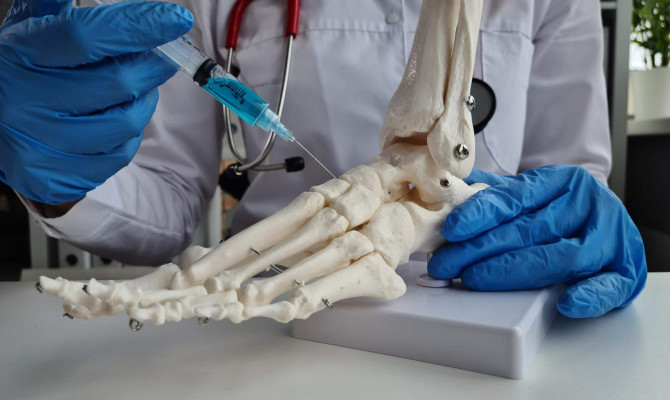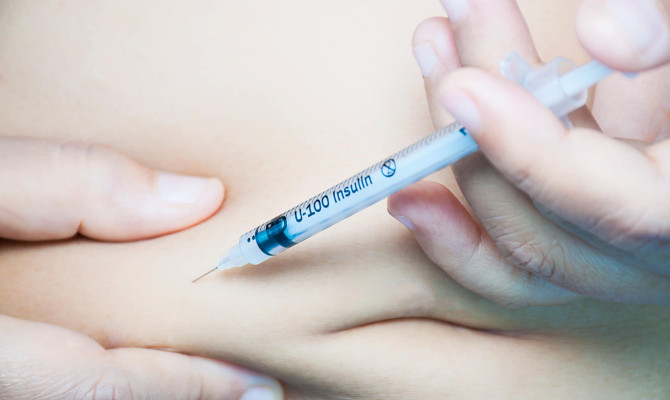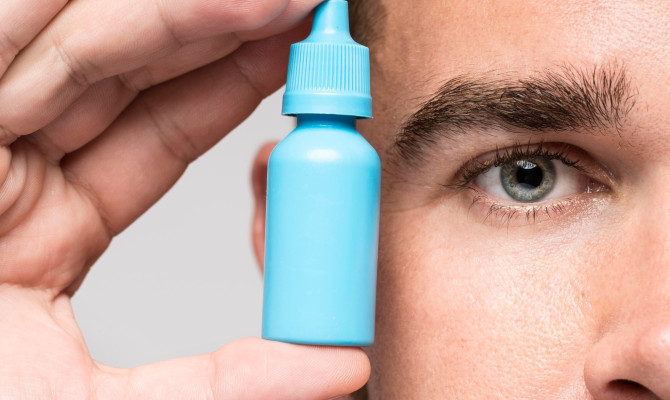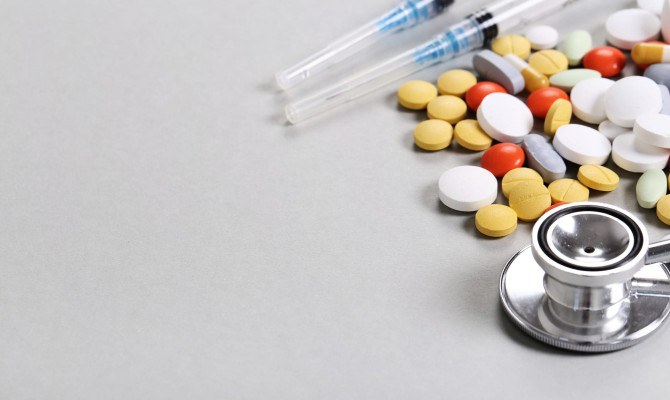Uses, Dosage and Side effects of Carvedilol

- Carvedilol
- 17 Aug 2023
Overview
What is Carvedilol?
Carvedilol is a drug belonging to a class of third generation beta-blockers which also has effects on blood vessels1Overview| Researched based study from Nhs.uk
Beta-blockers affect the muscles of the heart and plays important role in maintaining circulation of blood in vessels ( through veins and arteries) and hence lower blood pressure.
Carvedilol also has additional action against inflammation.
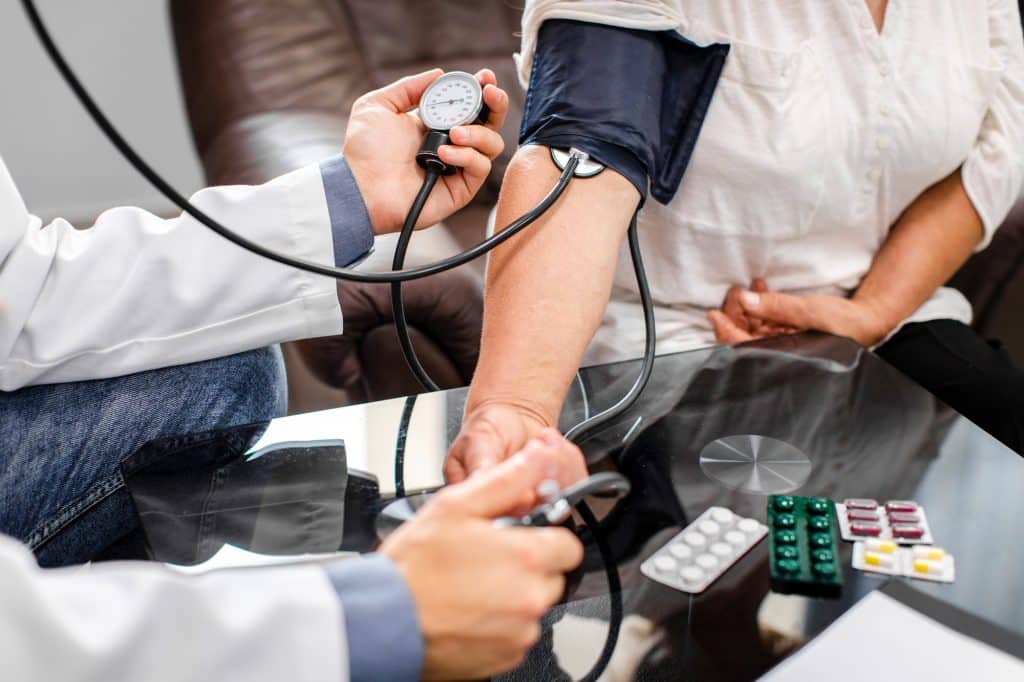
How does it work?
- Carvedilol acts as both alpha and beta blocker.
- Carvedilol has the ability to slow down heart rate. This way it relaxes the blood vessels that gives the opportunity for the heart to pump blood more efficiently to all the organs.
Uses
Uses of Carvedilol
Carvedilol is used in conjugation with other medications. It works by dilating the lumen of blood vessels and decreasing the number of heart contractions to improve circulation of blood and decrease blood pressure.
It is Commonly used in the treatment of :
- Heart failure
- Hypertension
- Left ventricular dysfunction
Treats Heart failure
- Carvedilol is a drug used to treat cardiac failure ( it is a condition in which the heart cannot pump blood to all body parts) and hypertension ( high blood pressure).
Hypertension Management
- Hypertension (High blood pressure) is a medical condition and when not treated, can cause damage to the cells of brain causing stroke, heart causing heart attack, blood vessels causing their narrowing called vasoconstriction, kidneys causing renal failure, eyes causing blindness and other parts of the body.7Uses| Researched based study from Fda.gov
Treats Left ventricular dysfunction
- It can occur after one episode of a heart attack. Normally, the left ventricle transports oxygenated blood to all the organs of the body. But in Left ventricular dysfunction this property is lost leading to issues in heart rhythms. Thus, Carvedilol is used to treat this condition.7Uses| Researched based study from Fda.gov
Instructions
Instructions to use
- It should be taken daily at the same time. Follow the medication instructions exactly.
- Avoid taking multiple doses or taking drug more frequently, stick to the physician’s advice.
- The capsules shouldn’t be chewed like gum or crushed like toffee.
- Carvedilol may help in controlling your problem of raised blood pressure, but it won’t make it go away.
- Never stop using the drug without consulting your doctor or physician first.
- Multiple serious heart issues like severe chest pain, a heart attack, or a missed beat could occur if you abruptly withdraw yourself from using the drug2Instructions| Researched based study from Medline.gov
Dosage
Dosage of Carvedilol
Carvedilol is available in both oral tablet and a capsule with extended-release (long-acting) action. The tablet is usually taken twice a day after having breakfast and dinner. Extended-release (long acting) capsule is usually taken in the morning hours with breakfast3Dosage| Researched based study from Drugs.com
The dosage of this medication will change from one patient to other. Listen carefully to your doctor’s instructions or read the prescription leaflet carefully before using the medication.
Dosage of Carvedilol in different health conditions are:
For heart failure
- Adults—At the beginning, 10 milligrams (mg) daily for at least the first two weeks.
- However, if the dose is more than 80 mg in a day may lead to toxicity.
For hypertension
- Adults—At the beginning, 20 milligrams (mg) daily for about 1-2 weeks.
For left ventricular dysfunction after a heart attack
- Adults—At beginning, 20 mg daily for about a week.
- The dosage listed above is hypothetical considering the patient’s BMI is within normal range, your actual dosage will depend on your weight and any underlying conditions.
- Your dose should be gradually modified over a period of one to two weeks, or looking at the improvement of patients symptoms, this should be done under the guidance of your doctors. 3Dosage| Researched based study from Drugs.com
If Missed the dose
- Take the missed dose as early as you find out.
- Avoid taking the missed dose if it is almost time for your next one.
- Don’t try taking two doses at once, this will land you into hypotension (Low blood pressure)3Dosage| Researched based study from Drugs.com
Side effects
Side effects of Carvedilol
Carvedilol is a high risk medication, because of its multiple adverse effects and high chances of toxicity.
Few common side effects associated with carvedilol are listed below:
Dizziness
- Especially if you stand up quickly from a seated or lying down position. These signs and symptoms are more likely to manifest when you first start taking this medicine or when the dose is raised. To avoid these additional events, it could be advantageous to sit or lie down immediately.4Side effects| Researched based study from Nlm.nih.gov
Fatigue
- Due to reduced blood flow to the muscles during exercise and reduced output from heart.
Bradycardia
- It is very common, patients with heart diseases may develop arrhythmias and heart block.
Asthma
- They can trigger acute asthmatic attack in asthmatics and therefore avoided in them.
On Abrupt withdrawal
- Abrupt withdrawal after prolonged use can cause rebound hypertension (due to upregulation of beta receptors. Hence should be gradually tapered.
- Hypotension, Weight gain, Hyperglycemia, Diarrhea are some other adverse effects associated with Carvedilol.4Side effects| Researched based study from Mayoclinic.org
In Pregnancy
- The American College of Obstetricians and Gynecologists’ (ACOG) recommended starting of pharmacological treatment along with change in life style for pregnancy-related persistent hypertension is 140/90.
- Women who are sexually active should be advised to let a doctor know if they are planning a pregnancy, suspect one, or are lactating.
- If using carvedilol throughout the third trimester, keep an eye out for signs of hypotension, bradycardia, low blood sugar, and breathing difficulties in the baby and take appropriate action.
- Labetalol is advised as the primary antihypertensive during pregnancy, according to guidelines, since it is more extensively studied when compared to Carvedilol.6Side effects| Researched based study from Nlm.nih.gov
Contraindications
Contraindications of Carvedilol
Avoid taking carvedilol in following health conditions:
- Severe hypotension (low blood pressure).
- Second or third-degree AV (atrio-ventricular) block.(heart block).
- Sick sinus syndrome.
- Severe bradycardia (decreased heart rate) in the absence of a working pacemaker.
- Heart failure which is significantly decompensated and needs inotropic support (drugs which elevate heart rate).
- Previous history of a hypersensitivity reaction following usage of the drug are absolute contraindications to use carvedilol 5Contraindications| Researched based study from Nlm.nih.gov
- This medication may make you feel drowsy or nauseous and therefore it is contraindicated if you are an occupational driver or a pilot
- Before driving your car, using machinery like loco pilot, or engaging in any other activity that could be hazardous therefore make sure you never use it while driving.
- Inform the attending physician or dentist that you are taking this medication before undergoing any type of surgery, including dental or cataract surgery, or receiving emergency care.
- When having cataract surgery, some patients who were taking this medication or had just taken it experienced a dangerous eye condition known as Intraoperative Floppy Iris Syndrome (IFIS)5Contraindications| Researched based study from Nlm.nih.gov
Precautions
Precautions to be taken in patients with multiple comorbidities
For diabetic patients
- Your blood sugar levels could alter as a result of this medication. Additionally, this medication may mask hypoglycemia (low blood sugar) symptoms including a quick heartbeat.
- If you have any of these issues or notice a change in the outcomes of your blood or urine sugar tests, speak with your doctor right once.
For congestive heart failure patients
- If you have an unexplained weight gain or more frequent shortness of breath, consult your doctor as this drug can cause fluid accumulation.
- These can indicate that your condition is getting worse.
For patients who use contact lenses
- Your eyes may produce less tears and cause dryness when taking carvedilol.
- Without first consulting your doctor, do not pause or stop taking this medication.
- Before discontinuing altogether, your doctor might advise that you progressively reduce the dosage.
- When a medication is abruptly stopped, multiple medical conditions may worsen, which can be risky.
For people with kidney problems
- Carvedilol can damage your normal renal physiological actions since it is nephrotoxic.
- Your doctor will monitor your kidney function by looking at your blood reports more specifically serum creatinine and serum urea levels and may lower your dosage or look for an alternative to carvedilol which has comparatively less impact on kidneys
For people with hyperactive thyroid
- The signs of an overactive thyroid (hyperthyroidism) can be concealed with carvedilol.
- If you abruptly stop taking carvedilol and have hyperthyroidism, your symptoms could get worse or you could get thyroid storm, a dangerous illness.
For people with pheochromocytoma (cancer of adrenal gland)
- Your doctor may look for alternative medication
For people with Prinz metal’s variant angina ( severe pain in the chest that occurs in early morning)
- If you have Prinz metal’s variant angina, carvedilol may make your odds of experiencing chest pain higher.
- If you have this condition, discuss taking carvedilol with your doctor before starting.
Medications like herbal or multivitamin supplements as well as prescription and nonprescription over the counter(OTC) medications should be avoided.7Precautions| Researched based study from Fda.gov
Interaction
Carvedilol Interactions
Interactions with other medicine
- Carvedilol may have interaction with analgesics like aspirin, CCBs (calcium channel blocker) like amlodipine, diuretics (furosemide, hydrochlorothiazide), and thyroid medicines (levothyroxine).
- Strong CYP2D6 inhibitors include antidepressants including fluoxetine, duloxetine, paroxetine, and bupropion when taken together with carvedilol they increase the concentration of carvedilol in blood and might raise the risk of major adverse events such hypotension, bradycardia.
- Digoxin and carvedilol both lower heart rate and impede atrioventricular conduction, bradycardia risk is increased when carvedilol and digoxin are used concurrently.
- The levels of cyclosporine an immunosuppressant (drug used in organ transplant post rejection) in your body could rise if you take carvedilol along with it. Your doctor may reduce your cyclosporine dosage while closely monitoring you.7Interactions| Researched based study from Fda.gov
Drug-Food Interaction
- The juice of a grapefruit may interact with carvedilol. Avoid drinking grapefruit juice if you’re taking carvedilol because it can make your blood more concentrated in the drug.
- Additionally, stay away from foods high in sodium, potassium, magnesium, and calcium when taking carvedilol as these may lessen its effects.
Drug Disease Interaction
Carvedilol should be avoided in following diseases:
- URTI ( upper respiratory tract infection) like bronchitis
- Asthma and emphysema
- Liver diseases
- Abnormal heart rate
- Diabetic
- Anasarca (generalized body swelling due to accumulation of fluid)
- On Dialysis with renal issues
Storage
Storage of Carvedilol
- Keep it at ambient temperature and out of places with excessive heat and moisture.
- Many drug packets or strips available are not having child proof packing and therefore should be kept away from them to avoid accidental toxicity.
Lifestyle changes
What diet & lifestyle changes need to be followed if taking Carvedilol?
Diet and life style modifications work in conjugation with drugs like carvedilol to bring the best action out of it, drug alone can only bring the blood pressure down for a while but changing lifestyle and dietary habits can maintain your blood pressure in a normal limit.
- Reduce your intake of processed or canned food products because they contain higher sodium and keep your salt intake very low.
- To enhance the taste of your diet, try substituting herbs or spices in place of salt.
- Use at least 30 minutes of your daily schedule by engaging in regular activity, such as cycling, walking, jogging, dancing, or swimming.
- High blood pressure may also result from ongoing stress. Therefore, reduce stress by altering your expectations, how you respond to specific events, and by scheduling time for yourself to engage in things you enjoy.
- Keep up a diet full of veggies, fruits, grains, and low-fat dairy products.
- Try to include foods high in the heart-healthy omega 3 fatty acid in your daily diet.
- Quit smoking and avoid drinking alcohol regularly.
Takeaway
Key takeaway
- Carvedilol is a non-specific drug and blocks beta-adrenergic receptors used to treat chronic heart failure from mild severe grading, increased blood pressure, and improper functioning of left ventricle following myocardial infarction (Heart attack) in otherwise stable looking patients.
- Working on having healthy habits will help significantly in controlling your blood pressure in addition to taking medication like carvedilol.
- Your doctor will keep a close eye on you and probably advise against engaging in any strenuous exercise like weightlifting, swimming during this period.
- While traveling, always have prescription medicines. Keep it in the handbag.
- Teach the patient’s relatives how to take their blood pressure and check their pulse. Have them monitor their blood pressure and pulse on a biweekly basis.
- Patients on carvedilol feel queasy or sleepy, advise them to refrain from driving and other tasks that call for attentiveness.
- Encourage the patient to change positions gradually to prevent orthostatic hypotension (sudden dizziness on getting up from bed), particularly while the therapy is starting or the dose is being raised.
Any feedback on this article?
 This Articles content was accurate
This Articles content was accurate Very Informative Article
Very Informative Article I have a question or a comment
I have a question or a comment
 This article contains inaccurate content
This article contains inaccurate content This article was not helpful
This article was not helpful I have a question or a comment
I have a question or a comment
We appreciate your helpful feedback!
Checkout our social pages
References
-
National Health Service
Carvedilol | Overview
-
Medline Plus
Carvedilol | Instructions
-
Drugs.com
Carvedilol Dosage | Dosage
-
Mayo clinic
Drugs and Supplements-Carvedilol (Oral Route) | Side effects
-
National Library of Medicine
Carvedilol | Contraindications
-
National Library of Medicine
Carvedilol | Side effects
-
U.S FOOD AND DRUG ADMINISTRATION
Carvedilol Tablets | Interactions | Contraindications












